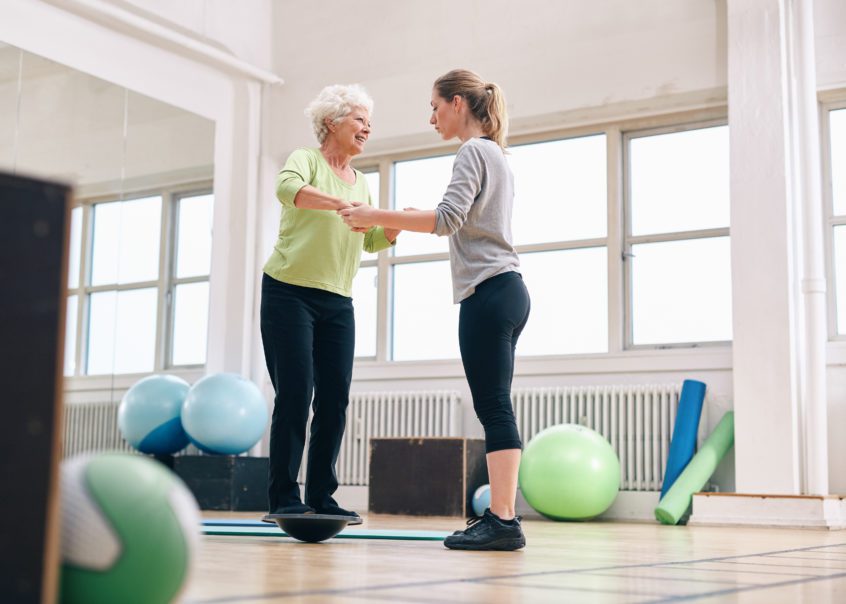According to the Centers for Disease Control, more than one out of four older people falls each year, and falling once doubles your chances of falling again.
A number of conditions can lead to falls—from vitamin D deficiency to vision problems to trip hazards like throw rugs. But a recent study has found that what people hear and do not hear can have a direct impact on their balance.
Published in JAMA Otolaryngology Head and Neck Surgery, the study provides a better understanding of the relationship between hearing loss and why people fall, especially in the elderly population. The findings could lead doctors to screen for hearing loss in patients at high risk for falls, detect hearing loss in its early stages, and treat it quickly.
This study found that the sounds we hear affect our balance by giving us important information about the environment, especially when there are other problems such as vision loss or neuropathy that affect feeling in the feet.
A team of researchers from Mount Sinai and New York University’s Steinhardt School of Culture looked at the association between sound and standing balance, reviewing 28 medical articles involving more than 700 patients and looking at trends in the data.
The studies analyzed mostly healthy adults, but also looked at patients with congenital blindness, damage to the inner ear causing balance and eye issues, including vertigo, and different levels of hearing loss.
All the research examined how sounds affected someone’s ability to keep their balance while standing still, often with their eyes closed and when standing on a pliable, squishy surface. They also looked at how wearing noise-canceling headphones (a complete lack of sound) affected balance. Some studies played white noise or static, while others used environmental sounds such as cocktail party chatter or running water.
They found that people had more difficulty staying balanced or standing still on an uneven surface when it was quiet but had better balance while listening to sounds.
The authors found that the type of sound was important when it comes to balance, too. Specifically, continuous background noise (usually static) was the most helpful for subjects to keep their center of gravity. Likewise, they found some types of sounds actually caused poor balance.
For example, some people who listened to sound jumping back and forth through headphones (i.e., beeping that went from left to right) had difficulty standing upright. The authors believed this may be because sound can act as an “auditory anchor.”
The research analysis also showed that sound became more important for balance when the subjects were given difficult balancing tasks like standing on a moving floor or if the patients had pre-existing sensory issues. When people with vision loss, hearing loss, or balance problems heard stationary sounds, their posture dramatically improved. This suggests people rely more on hearing when other senses are impaired.
Ultimately, the research suggests sounds can have a stabilizing effect on balance and demonstrates that being unable to hear sounds can result in poor balance, and can put an individual at greater risk for falls.
Additional research is necessary to confirm the role hearing loss and its treatment has in fall prevention. In the meantime, if you are over 65 and have difficulty hearing, it could put you at greater risk for balance problems and falls.
You can improve your hearing and lower your risk for falling by having your hearing evaluated by a doctoral-level audiologist. If it’s determined that you have a hearing loss, wearing hearing aids could improve your hearing, and may reduce your risk for falls as you age.
Associated Audiologists is the area’s premier audiology practice featuring doctoral-level audiologists who specialize in hearing evaluations, hearing aids, and dizziness and balance disorders.
Schedule an appointment with a doctoral-level audiologist.
Reference: The Mount Sinai Hospital / Mount Sinai School of Medicine. “Sound can directly affect balance and lead to risk of falling.” ScienceDaily. ScienceDaily, 12 March 2020. <www.sciencedaily.com/releases/2020/03/200312142303.htm>.



